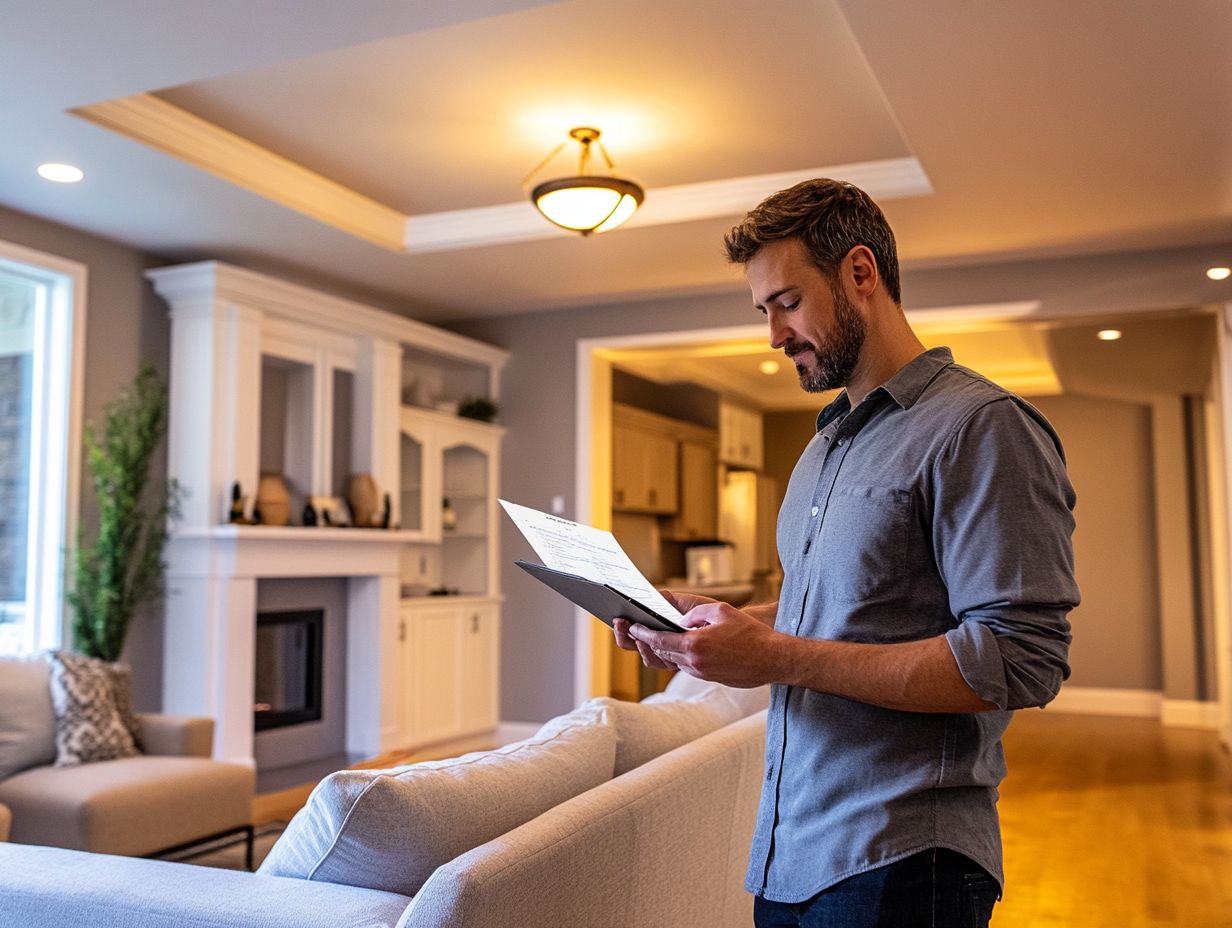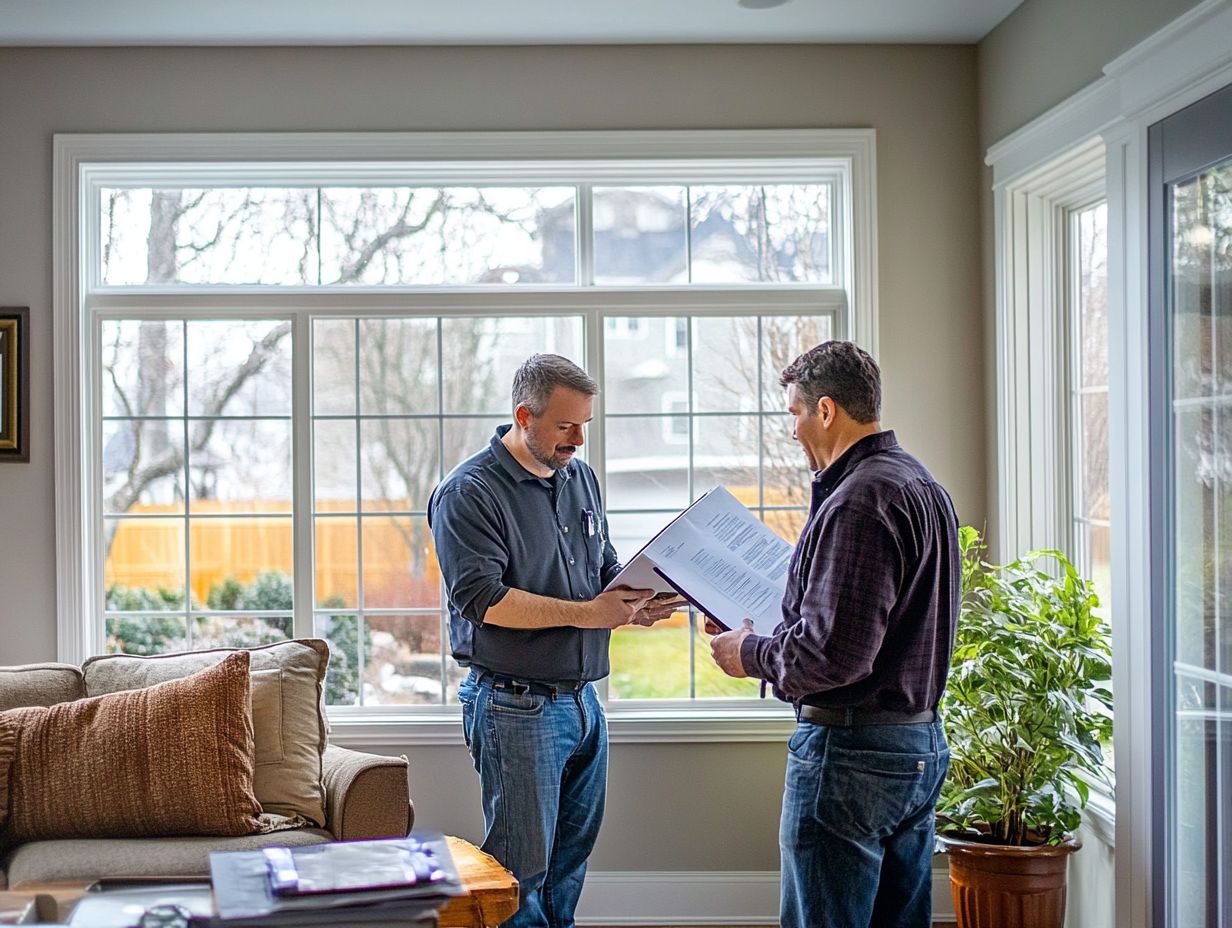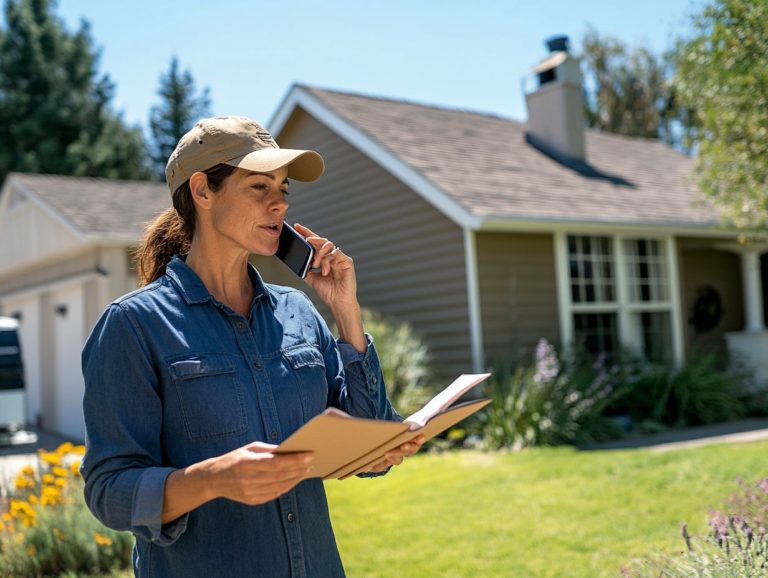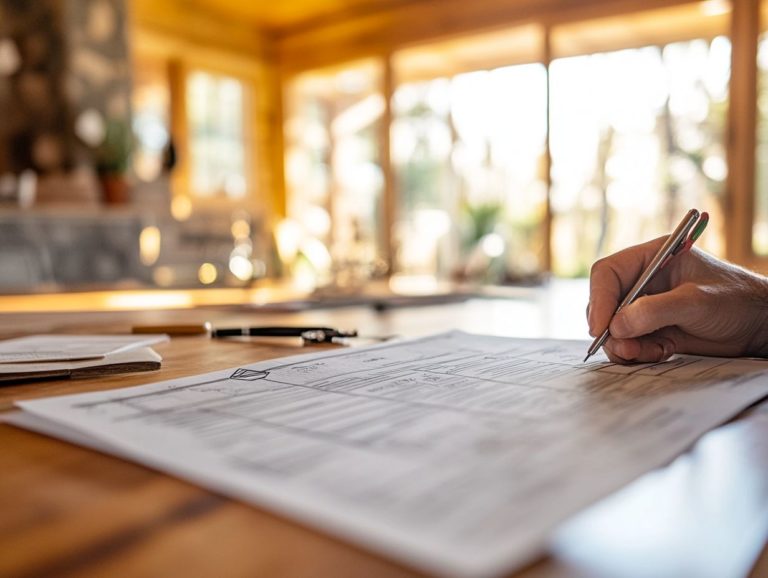Understanding Your Rights During Home Inspections
Purchasing a home stands as one of the most substantial investments you will undertake, and a home inspection is an essential step in this journey. Don t skip the home inspection; it could save you from costly surprises!
This guide delves into the purpose and significance of home inspections. It outlines what you can anticipate during the inspection, how to prepare effectively, and the necessary actions to take afterward.
Armed with this knowledge, you can navigate the process with confidence, ensuring that your new home is a secure and wise investment.
Contents
Key Takeaways:

- A home inspection is a crucial step in the home buying process that allows buyers to identify potential issues with the property before making a purchase.
- Buyers have the right to a thorough inspection and should review their legal protections to ensure a fair and accurate inspection.
- You should also prepare for a home inspection by understanding what to expect and how to prepare the property. During the inspection, actively look for any red flags and ask relevant questions.
What is a Home Inspection?
A home inspection serves as a thorough evaluation of a property’s condition, performed by a qualified home inspector who carefully checks the structural integrity, systems, and safety standards of the home.
This process is vital for both buyers and sellers in the real estate market. It includes detailed examinations of mechanical systems, electrical issues, plumbing concerns, and potential environmental hazards, such as radon levels (a colorless, odorless gas that can pose health risks).
In Colorado, specific regulations outline the requirements and expectations for home inspections. This ensures that both parties are fully informed about the property’s condition before moving forward with the closing process, which is crucial for understanding the home inspection process.
Purpose and Process of Home Inspections
The primary purpose of a home inspection is to equip you, whether you re a buyer or a seller, with a clear idea of the property’s condition, which is essential during the closing process.
The evaluation involves several steps, starting with scheduling the inspection at a time that works for everyone involved. Typically, you’ll hire a qualified inspector if you re buying, while sellers should prepare by ensuring easy access to all areas of the home.
During the inspection, expect a careful examination of various elements, including the foundation, roof, plumbing, and electrical systems. As the inspector shares feedback, it s vital for you to stay engaged and ask any clarifying questions that may arise.
After the inspection, the generated report will provide valuable insights that can shape your negotiation strategies. This enables you to address any issues or request repairs if you re a buyer, while sellers can leverage it to highlight the home s strengths and alleviate any concerns.
Why Home Inspections are Important for Buyers
Home inspections are essential for you as a buyer. They reveal potential issues within a property that could result in costly repairs or safety concerns.
This process serves to safeguard your rights and interests, enabling you during negotiations and ensuring that you make informed decisions.
Benefits of a Thorough Inspection
A thorough home inspection offers you numerous advantages as a buyer. It uncovers hidden issues, ensures compliance with safety standards, and provides you with valuable leverage during negotiations. Understanding the importance of home inspections can greatly benefit your purchasing decision.
By identifying potential problems early on, you can avoid unexpected costs that might crop up post-purchase, ultimately saving you a substantial amount of money in the long run.
Knowing that a property meets safety standards grants you peace of mind and assures you of a secure living environment.
This comprehensive assessment also enables you to plan for future maintenance needs. You can budget wisely and prioritize repairs, significantly enhancing the longevity of your investment.
In short, the benefits of a thorough inspection extend far beyond immediate concerns, paving the way for informed and confident homeownership.
Understanding Your Rights as a Buyer

Understanding your rights as a buyer is essential in real estate transactions. This knowledge enables you to make informed decisions and ensures compliance with Colorado laws concerning property inspections and necessary disclosures, including understanding the home inspection process.
Legal Protections and Responsibilities
Legal protections for you as a buyer include your right to receive an accurate inspection report. Sellers have the obligation to disclose any known issues. Understanding the basics of home inspections is essential. It cultivates transparency in real estate dealings and fosters trust between you and the seller.
When considering tenant rights, it’s equally important to acknowledge that tenants are protected by certain laws. These laws hold landlords accountable for providing safe and suitable living situations. Just as you can seek remedies for undisclosed defects, tenants have the right to safe, well-maintained premises.
This reinforces the idea that everyone involved in property transactions carries fundamental responsibilities. Understanding these legal requirements bolsters your protection as a buyer and highlights the interconnected nature of buyer and tenant rights. This ensures a balanced ecosystem in the realm of real estate.
Preparing for the Home Inspection
Get ready! Preparing for a home inspection is key to a smooth buying experience. This preparation involves understanding what to expect, choosing a qualified home inspector, and grasping how the inspection fits into the broader closing process.
What to Expect and How to Prepare
During a home inspection, you can anticipate a thorough evaluation of the property conducted by a qualified home inspector. They will assess various systems and pinpoint any maintenance tasks that require your attention.
Be prepared for an in-depth review of essential components, including the roof, plumbing, electrical systems, and foundation. Typically lasting between two to four hours, this inspection will provide valuable insights into necessary repairs or updates, enabling you to make informed decisions.
Effective communication with the inspector is key. Don’t hesitate to ask questions and seek clarifications as you go along. Understanding the necessity of home inspections not only aids in negotiating repairs but also lays the groundwork for a smooth closing process. This will ensure you are fully aware of your future responsibilities as a homeowner.
During the Home Inspection
During the home inspection, you have the invaluable opportunity to observe the assessment of mechanical systems, electrical issues, and plumbing concerns.
This is your moment to ask insightful questions, allowing you to gain a deeper understanding of the property s condition and safety standards.
What to Look For and Questions to Ask

You should know exactly what to look for during the home inspection, including signs of mechanical system failures, electrical issues, and plumbing problems. It s important to prepare some crucial questions to ensure you re well-informed.
Identifying potential red flags is essential. Be on the lookout for unusual noises, inconsistent temperatures, or leaks that might signal underlying mechanical failures. You might also want to check for flickering lights or discoloration around outlets, as these could indicate electrical concerns.
It s wise to ask your home inspector specific questions such as:
- Are there any signs of plumbing corrosion?
- How old is the HVAC system? When was it last serviced?
These inquiries not only help you uncover immediate issues but also provide valuable insight into future maintenance needs.
After the Home Inspection
After the home inspection, it’s crucial for you to carefully review the inspection report. This document will serve as your roadmap in negotiating necessary repairs and asserting your rights. For more details, check out what to expect during a home inspection before you finalize the closing process.
Take action! Use the insights from the inspection report to engage with the seller and ensure your new home meets all the standards, while also understanding the benefits of home inspections.
Negotiating Repairs and Next Steps
Negotiating repairs after a home inspection is an important step for buyers. This process helps address issues from the inspection report while respecting both buyer and seller rights, making it crucial to understand the home inspection process for buyers.
Clearly present your findings, focusing on safety concerns or major repairs that could affect the property’s value. Be ready to explore compromises by accepting some repairs and requesting credits for others.
Set a reasonable timeline for repairs to help streamline the closing process. This ensures both parties feel satisfied and informed throughout negotiations.
Frequently Asked Questions
Here are some common questions about home inspections.
What are my rights during a home inspection?
As a potential home buyer, you have the right to a detailed home inspection. Understanding the process of home inspections ensures that this inspection meets industry standards, and that the inspector is qualified and unbiased.
Can I attend the home inspection?

Yes, you can and should attend the home inspection. This allows you to ask questions and understand the property’s condition better.
Do I have the right to request repairs based on the home inspection?
Yes, you can request repairs or negotiate a lower price based on the inspection findings. However, the seller is not required to agree to your requests.
What if the home inspection report is inaccurate?
If you think the report is inaccurate or missing important details, you can ask for a re-inspection or hire a different inspector. It’s crucial to resolve any discrepancies before proceeding with the purchase.
Can I waive my right to a home inspection?
You can waive your right to an inspection, but it’s not advisable. Doing so may expose you to hidden problems or costly repairs.
What happens if the seller refuses to allow a home inspection?
If the seller refuses an inspection, it may be a red flag to consider walking away. However, you could negotiate with them or include a condition in the contract that allows you to back out if major issues arise during the inspection.
Have more questions? Reach out to get help with your home buying journey!






